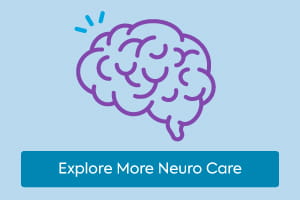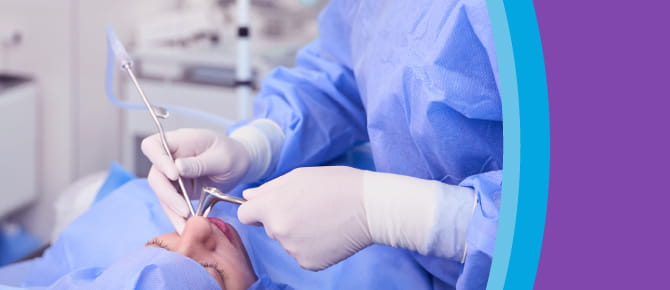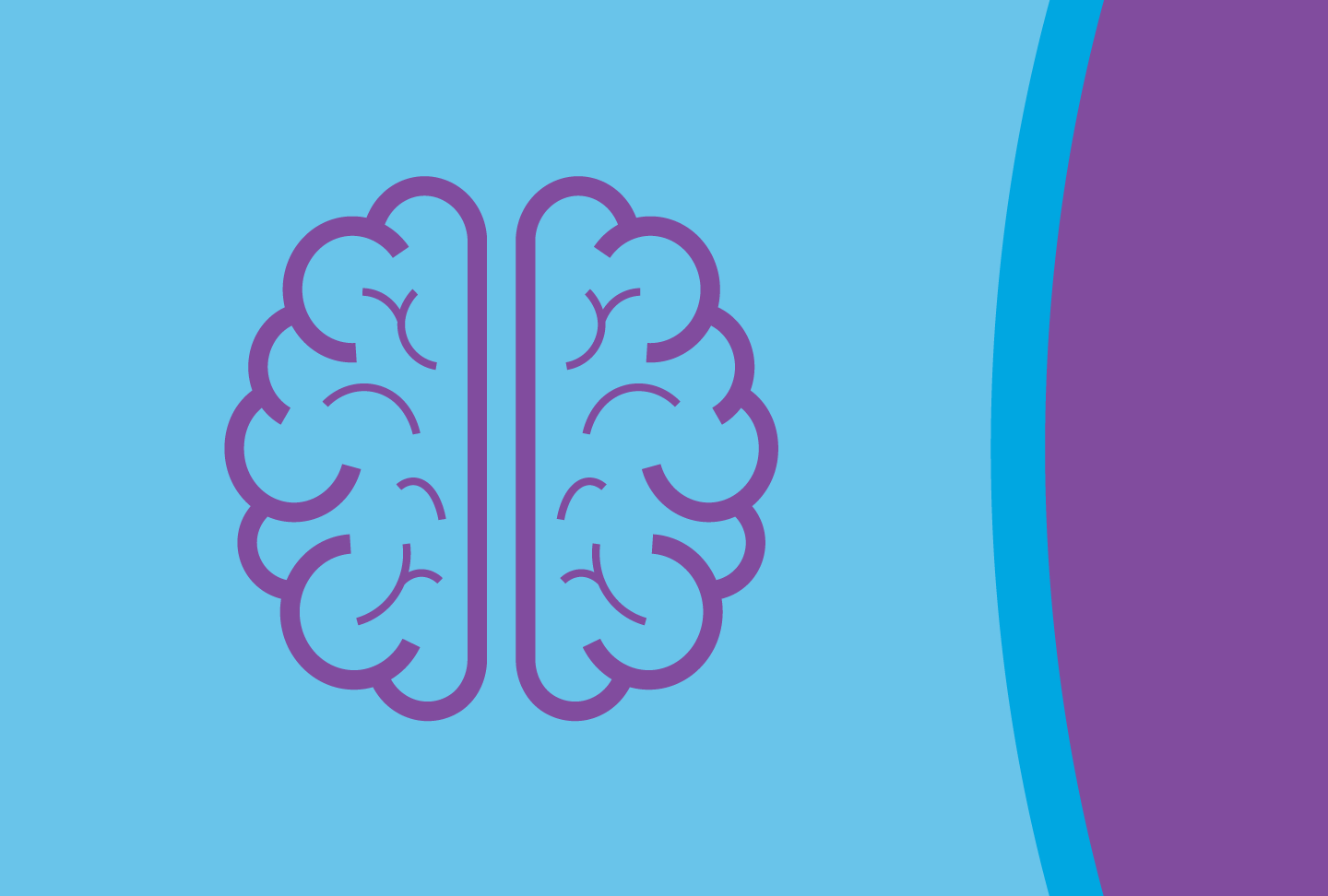Neuro Care
at Wellstar MCG Health Medical Center
The neuro care team at Wellstar MCG Health Medical Center uses our world-class training to create individualized care plans for the unique needs of both children and adults.
- Wellstar MCG Health Neuro Care
- About
- Services
- Neuro Care Highlights
- Locations
- Team
About Us
Expert, Collaborative Neuro Care
Wellstar, affiliated with Medical College of Georgia, has dedicated neuro experts who work together to provide the most personalized and compassionate care for adults and children. We evaluate and provide comprehensive treatment for most neurological disorders. We have experienced fellowship-trained neurosurgeons who perform cutting-edge neurosurgery on adult and pediatric patients in Georgia, South Carolina and throughout the Southeast. If you experience symptoms of a stroke, our advanced interventional neuro team is ready to help—fast.
Working together for you
Our teams of neurologists, neurosurgeons, neuroradiologists and neurobehavioral practitioners work together to ensure high-quality, collaborative care. We design personalized treatment plans for people with complex conditions including epilepsy, movement disorders, brain tumors, spine conditions and problems with the blood vessels in the brain and spinal cord.
Our team works with other Wellstar specialists from multiple fields of medicine, such as neuro-oncology, neuropsychology, sleep medicine and pain management. We also collaborate with your primary care provider about the ongoing management of your neurological health.
Advanced treatments & clinical trials
At Wellstar MCG Health, we offer a full range of the latest treatment options, including deep brain stimulation to treat movement disorders and Gamma Knife to treat brain tumors. We also offer the latest neurovascular and endovascular treatments for brain disorders.
As an academic medical center through our exclusive partnership with Medical College of Georgia, our patients often have access to clinical trials for a range of neuro conditions, including brain tumors, epilepsy, memory disorders, movement disorders, multiple sclerosis, neuromuscular disorders and spine disorders. We strive to identify new diagnostic tests and treatments to improve outcomes.
Nationally recognized neuro care
People with neurological conditions receive nationally recognized care at Wellstar MCG Health, which has been honored by multiple organizations for the excellent level of care we provide.
- Advanced Comprehensive Stroke Center accreditation by The Joint Commission indicates the highest level of stroke care, alongside advanced certification by the American Heart Association/American Stroke Association.
- Level IV Epilepsy Center accreditation by the National Association of Epilepsy Centers is the highest designation given.
- MS Care Center accreditation by the National Multiple Sclerosis Society recognizes us as a Partner in MS Care and a Center for Comprehensive Care, which is the highest endorsement made by the organization.
- ALS Center of Excellence certification by the ALS Association confirms that we meet the highest established national standards of care in the management of Amyotrophic Lateral Sclerosis (ALS).
Our Services
- Neurology
- Neurosurgery
- Stroke Care
- Epilepsy & Seizures
- Parkinson’s & Tremors
- Neurocritical ICU
- Neuroradiology and Advanced Imaging
- Pain Medicine
Neurology
For people experiencing neurological symptoms or neck or back pain, our board-certified neurologists use their world-class training and extensive experience to create individualized care plans that accommodate every patient’s unique needs. We cover the entire spectrum of neurological conditions, including:- Neck and back pain
- Dementia and memory disorders including Alzheimer’s disease
- Seizure disorders and epilepsy
- Headache and migraine disorders
- Movement disorders, such as Parkinson's disease
- Neuromuscular disease including neuropathy, Guillain-Barré syndrome, ALS (Lou Gehrig's disease), muscular dystrophy and myasthenia gravis
- Multiple sclerosis
- Stroke
Neurosurgery
We offer neurosurgery to treat diseases and problems affecting the brain, spine, spinal cord and peripheral nerves. Our top-rated neurosurgeons have expertise in complex surgery of the brain, spine and nerves. We work closely with specialists across the Wellstar system to provide the most accurate diagnosis. Wellstar neurosurgeons collaborate to help patients have the best outcomes. We provide a full range of neurosurgical services to patients at Wellstar MCG Health, offering specialized services not available in other facilities in the region. Our neurosurgical operating rooms are equipped with state-of-the-art equipment, including the only Gamma Knife Center of the region. We also offer pediatric neurological care at Wellstar Children's Hospital of Georgia, where our neurosurgeons work with pediatric neurologists to treat children with brain and spinal disorders.Procedures we offer
Our neurosurgeons are experts in performing minimally invasive surgeries on the brain, spine and nerves, including:- Brain tumor surgery
- Epilepsy surgery
- Gamma Knife radiosurgery
- Normal pressure hydrocephalus
- Pain management and therapy
- Pediatric neurosurgery
- Spine surgery
- Skull base surgery
- Vascular and endovascular neurosurgery
Our subspecialties
When it comes to your brain and spine, it's important to see specialists with the training and knowledge to perform these highly specialized procedures. Our subspecialties include:- Complex spine surgery
- General neurosurgery
- Treatment for normal pressure hydrocephalus
- Peripheral nerve surgery
- Surgical oncology
- Surgical pain management
- Skull base surgery
- Stroke treatment
- Functional/stereotactic neurosurgery for movement disorders and epilepsy
Stroke Care
The Advanced Comprehensive Stroke Center at Wellstar MCG Health delivers highly skilled and responsive stroke care to patients to save lives and prevent disabilities. Our surgeons are experts in the diagnosis and treatment of:- Aneurysms/ruptured aneurysms, when the wall of the artery becomes weak and could, or does, burst
- Atherosclerosis, a buildup of plaque in the carotid artery that can block blood flow to the brain
- Intracranial and cervical venous stenosis, conditions in which there is a narrowing or blocking of blood flow through the veins
- Moyamoya disease, a rare condition that causes blood vessels in the brain to narrow
- Pulsatile tinnitus, a condition when you can hear in your head the rhythmic sound of blood pulsing
- Sickle cell vasculopathy, a blockage in the arteries to the brain due to inflammation from sickle cell disease
- Vascular malformations of the brain, such as arteriovenous malformations (AVMs), are abnormal clusters of veins and arteries that can tangle together and affect blood flow.
Interventional care
We offer the region’s only interventional stroke care program, which requires a skilled team of neurologists, neurosurgeons, intensive care unit staff and nurses. Our experts perform both surgical and non-surgical procedures to treat problems with the blood vessels in the brain.REACH stroke telemedicine
Our neurologists developed REACH Health (Remote Evaluation for Acute Ischemic Stroke), a nationally recognized telemedicine service. This technology allows our team to diagnose and treat stroke from participating rural hospitals 24/7, expanding access to specialized stroke care. Learn to recognize the signs of a stroke.Epilepsy & Seizures Program
Wellstar MCG Health Medical Center and Wellstar Children’s Hospital of Georgia in Augusta have a long-standing legacy of being leading U.S. epilepsy care and research centers. Regionally, our Adult and Pediatric Epilepsy and Seizures Program are two of only three Level 4 Comprehensive Epilepsy Centers in Georgia, the highest designation for an epilepsy care facility awarded by the National Association of Epilepsy Centers.Our patients of every age benefit from having holistic care from a team of epilepsy and seizure care experts. They include adult and pediatric epileptologists—board-certified neurologists with advanced training, board-certified functional neurosurgeons, neuroradiologists, neuro psychologists, clinical psychologists, neuroscience nurses, EEG technologists and pharmacists.
Diagnosis & epilepsy monitoring unit
Our epilepsy and seizure experts use a range of tests to identify the type of seizure and the cause to determine the best treatment for you. At both Wellstar MCG Health and Wellstar Children's Hospital of Georgia, we have inpatient epilepsy monitoring units where patients can have specialized EEG testing. The painless test records the brain's electrical activity through electrodes attached to the head to help doctors determine if the brain's electrical activity is causing seizures. The results help your care team create a personalized plan so you can manage your seizures in the best possible way.
Surgery & streamlined eligibility determination path
Our center is one of only a few programs in the Southeast that use advanced methods to help our patients, including surgery, laser interstitial thermal therapy, robotic-assisted stereotactic EEG and neuromodulation (vagal nerve stimulation, responsive neurostimulation and deep brain stimulation—or DBS). Our program offers a streamlined pathway to determine if a patient is a candidate for surgery.Clinical trials
At Wellstar MCG Health and Wellstar Children’s Hospital of Georgia, patients get access to high-quality care and innovation of an academic medical center. These are the current epilepsy trials available to our patients (last updated August 2025):
- (BHV-7000-302) A Phase 2/3 Multicenter, Randomized, Double-Blind, Placebo-Controlled, Study to Evaluate the Efficacy, Safety and Tolerability of BHV-7000 in Subjects with Refractory Focal Onset Epilepsy
- (BHV7000-304) A Phase 2/3 Multicenter, Randomized, Double-blind, Placebo-controlled Study to Evaluate the Efficacy, Safety, and Tolerability of BHV-7000 as Adjunctive Therapy in Subjects with Idiopathic Generalized Epilepsy with Generalized Tonic-clonic Seizures, with Open-label Extension
- (YKP3089C049) Open-label Study of Cenobamate Monotherapy in Adult Subjects with Newly Diagnosed or Recurrent Partial-Onset Epilepsy
- (BHV7000-201) A Phase 2, Global, Multicenter, Long-term Safety Study Designed to Assess the Safety and Tolerability of BHV-7000 in Subjects with Refractory Focal Onset Epilepsy
- Studies currently open to accrual:
- (YKP3089) Open-label Study of Cenobamate Monotherapy in Adult Subjects With Newly Diagnosed or Recurrent Partial-Onset Epilepsy
- (BHV-7000, BHV7000-304) A Study to Determine if BHV-7000 is Effective and Safe in Adults With Idiopathic Generalized Epilepsy With Generalized Tonic-clonic Seizures (SHINE)
- (BHV-7000, BHV7000-302) A Study to Determine if BHV-7000 is Effective and Safe in Adults With Refractory Focal Onset Epilepsy (RISE 2)
Principal investigator: Debra Moore-Hill, MD, MPH, FAES, FAAN
Parkinson's & Tremors Program
Wellstar MCG Health Medical Center offers world-class, comprehensive care for Parkinson's, tremors and other movement disorders. Our aim is to help you regain movement, manage symptoms and get back to doing what you love. We are one of only a small number of programs in Georgia to offer a high level of care options, including deep brain stimulation and clinical trials.
Our program is one of around 40 U.S.-based prestigious comprehensive Parkinson's Disease Centers of Excellence designated by the Parkinson’s Foundation. This means we meet rigorous standards and have a specialized team who are up to date on the latest Parkinson’s medications, therapies and research to provide the best care.
Academic research center
Treating Parkinson's & movement disorders
People with movement disorders require specialized expertise, careful diagnosis and the right management so they can maintain the best possible quality of life. Our team is made up of knowledgeable and compassionate movement disorder specialists including neurologists with additional movement disorder training, functional neurosurgeons, neuroscience nurses, neuropsychologists and therapists (physical, occupational and speech).
We work with you to create a personalized care plan that may include:
- Medication
- Botulinum toxin injections (Botox)
- Surgery like deep brain stimulation
- Physical, occupational or speech therapy
- Clinical trials
Surgery & streamlined eligibility determination path
Some people with movement disorders may qualify for surgery. There are only a few functional neurosurgeons offering deep brain stimulation and other types of movement disorder surgery in the Southeast—patients can visit one of these hard-to-find specialists at Wellstar. These procedures are performed at Wellstar MCG Health. Our program offers a streamlined pathway to determine if a patient is a candidate for surgery. Schedule an appointment with one of our neurologists who specializes in movement disorders to learn more.Clinical trials
Through Wellstar MCG Health’s exclusive partnership with Medical College of Georgia, we offer access to the latest treatments and clinical trials. Our team of experts and research scientists at Medical College of Georgia continue to advance care through research and discovery. When available, we offer patients access to the latest clinical trials for movement disorders.Find a movement disorder specialist
Schedule an appointment with a movement disorder specialist at one of our neurology offices:
Neurocritical Intensive Care Unit
The largest in the area, our 20-bed neurocritical ICU is equipped to stabilize and treat people after neurosurgery or when recovering from a stroke. The unit includes a dedicated team of neurocritical care-certified specialists and the most advanced diagnostic technology, such as high-resolution MRI and cerebral and spinal angiography. Learn more about neurocritical care at Wellstar.Neuroradiology & Advanced Imaging
At Wellstar MCG Health, we offer a range of neuro imaging using the latest technology to quickly and accurately diagnose your condition. The right combination of tests helps your doctors determine the best course of treatment and create a personalized care plan for you.Diagnostic imaging tests
- Magnetic resonance imaging (MRI) uses a magnetic field to produce detailed images of your brain, face, neck, nervous system and spine.
- Ultrasonography or neurosonography uses sound waves to look at the brain and nervous system for problems affecting the brain and spinal cord.
- Computed tomography (CT) uses radiation, and sometimes injected contrast dye, to produce multiple images of the head and spine. A computer then combines the images to give your doctor a cross-sectional view of the brain or spine to determine possible causes of your symptoms.
- Arteriogram uses contrast dye and X-ray to produce images of blood vessels in the brain, head and neck to look for blockages.
- Myelogram uses contrast dye injected into the spinal canal, the space formed by the vertebrae that surrounds the spinal cord, along with X-ray or CT to look for issues with the spinal cord or canal.
- Positron emission tomography (PET) uses a radioactive drug, also called tracer, to evaluate how the brain is functioning.
- Single-photon emission computerized tomography (SPECT) evaluates blood flow and activity in the brain to diagnose Alzheimer's disease, as well as other neurodegenerative diseases, strokes, seizures and memory loss.
Diagnostic clinical procedures
- Electrodiagnostic tests use electrodes to see the electrical activity that moves from the brain to the motor nerves to the muscles. Two types include electromyography (EMG) and nerve conduction velocity (NCV), which look for problems with the motor neurons and muscles.
- Electroencephalography (EEG) uses electrodes to evaluate electrical charges produced in the brain.
- Evoked potential tests use electrodes to evaluate how the brain responds to stimulation through sight, sound and touch. Three types include the brainstem auditory evoked response (BAER) test, somatosensory evoked response (SSER) test and visual evoked response (VER) test, all of which can help diagnose and treat disorders, such as multiple sclerosis.
- Spinal tap involves inserting a needle into the lower back to collect cerebrospinal fluid to look for infections, cancers and nervous system disorders.
- Brain biopsy involves removing a small piece of abnormal brain tissue and studying it under a microscope to distinguish normal brain tissue from abnormal brain tissue.
Pain Medicine
At Wellstar MCG Health, our pain medicine specialists help people manage chronic and cancer-related pain with compassion and advanced expertise. Our board-certified pain medicine physicians, advanced practice providers, psychologists and nurses create individualized treatment plans focused on restoring function, reducing discomfort and improving quality of life. We take a comprehensive, multidisciplinary approach—combining interventional and non-interventional techniques, behavioral health support and collaboration with other Wellstar specialists to ensure seamless, whole-person care. Using leading technology and image-guided procedures, we help patients safely return to their daily activities.Conditions we treat
- Back and neck pain
- Cancer-related pain
- Complex regional pain syndrome (CRPS)
- Facial and trigeminal pain
- Fibromyalgia
- Headaches and migraines
- Joint and myofascial pain
- Neuropathic and radicular pain
- Pelvic or abdominal pain
- Postherpetic neuralgia (shingles)
- Spinal stenosis
Treatments we offer
- Medication management, including advanced neuromodulation therapies
- Fluoroscopically and ultrasound-guided injections
- Epidural injections and nerve blocks
- Major joint and bursa injections
- Radiofrequency ablation for chronic pain
- Minimally invasive procedures, including:
- Spinal cord and dorsal root ganglion stimulation (trials and implants)
- Intrathecal drug delivery systems (pain pumps)
- Peripheral nerve stimulation
- Kyphoplasty for vertebral compression fractures
- Minimally invasive lumbar decompression (MILD)
- Psychological and behavioral pain therapy





